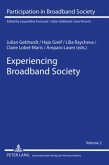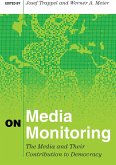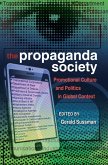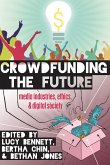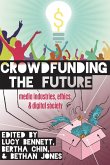This book discusses the personal and social lives of e-actors interacting within the socio-technical structures of the evolving broadband society by exploring the different ways in which individuals, social groups, institutions, operators, manufactures, policy makers, designers and other parties contribute to human communication and social interaction in contemporary media societies. The volume covers four theoretical and empirical areas of research: the conceptual perspectives of e-actors, the emergence of new forms of agency, subjectivity, and mediated interpersonal communication, the everyday life experiences of e-actors, and finally the shaping policies and regulations in the broadband society.
"This collection of conference papers, with palpable consistency in quality, comes together as a coherent whole. It beckons us to re-conceptualize the relation between technology and society in light of the new realities created by user empowerment. It will serve as an excellent springboard for scholars seeking to break new theoretical ground." (Harmeet Sawhney, Editor-in-Chief, The Information Society)
"This volume sheds revealing light on the subject of e-actors and their personal and social lives as broadband technology becomes a fundamental part of their daily routines. Though diverse in range and topic, chapter authors do a marvelous job of integrating data from an array of topics to produce a rich and varied mosaic of analysis. Investigations range from the highly personal to that of national policies, yielding valuable insights at levels ranging from the phenomenological and personal to that of institutions and policy." (Professor James E. Katz, Director, Center for Mobile Communication Studies, Rutgers University)
"This book addresses a variety of complex and vexing questions. It brings together researchers from around Europe to ask just what kind of society are we in and how useful are the labels we commonly deploy to describe it." (Professor Richard Harper, Principal Researcher, MSR Cambridge)
"This volume sheds revealing light on the subject of e-actors and their personal and social lives as broadband technology becomes a fundamental part of their daily routines. Though diverse in range and topic, chapter authors do a marvelous job of integrating data from an array of topics to produce a rich and varied mosaic of analysis. Investigations range from the highly personal to that of national policies, yielding valuable insights at levels ranging from the phenomenological and personal to that of institutions and policy." (Professor James E. Katz, Director, Center for Mobile Communication Studies, Rutgers University)
"This book addresses a variety of complex and vexing questions. It brings together researchers from around Europe to ask just what kind of society are we in and how useful are the labels we commonly deploy to describe it." (Professor Richard Harper, Principal Researcher, MSR Cambridge)


